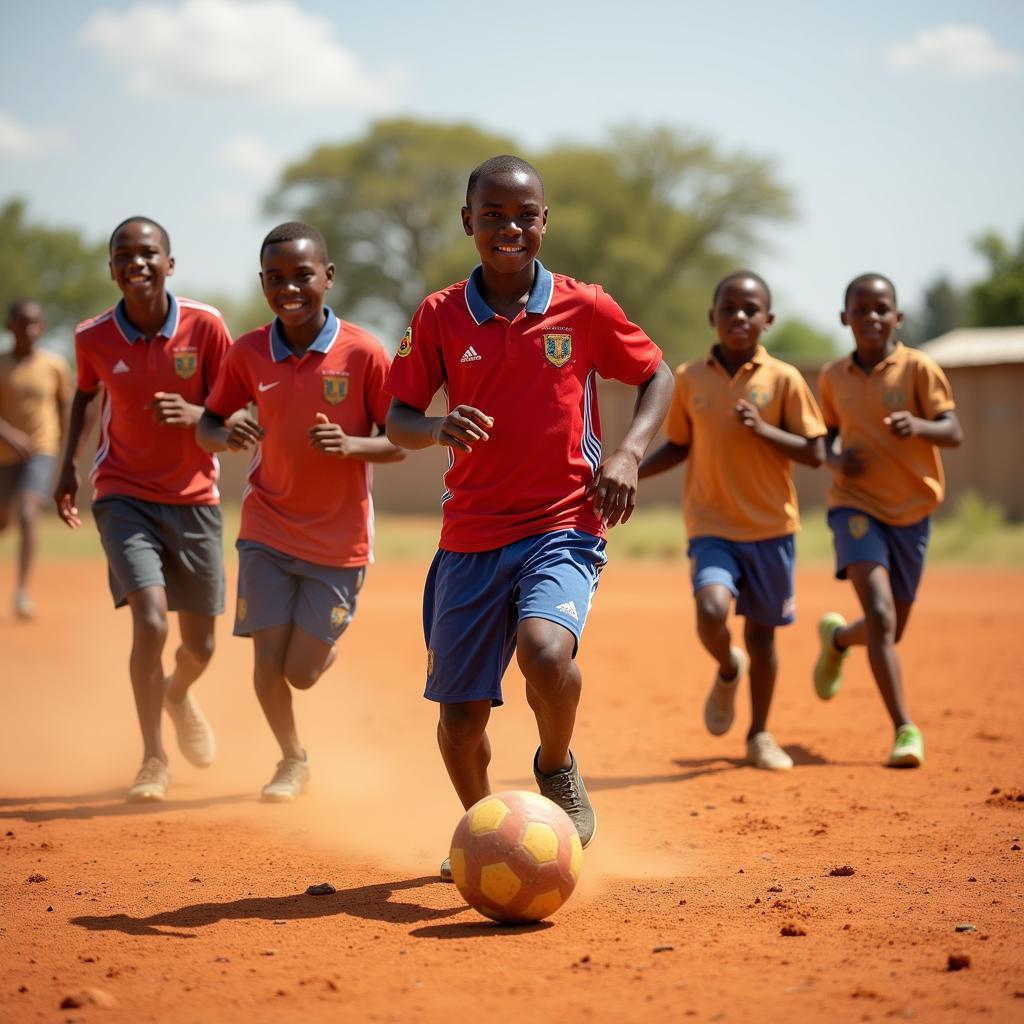African Countries with Child Soldiers: A Complex Issue
The use of child soldiers is a grave violation of human rights, and unfortunately, it continues to plague several African countries. This issue, often fueled by poverty, conflict, and instability, robs children of their childhoods and forces them into roles they are not emotionally or physically equipped to handle.
The Factors Driving Child Soldiery
There are multiple factors that contribute to the persistence of child soldiery in Africa. These include:
- Poverty: Impoverished families, desperate for survival, may see no other choice but to offer their children to armed groups in exchange for money or protection.
- Armed Conflict: Protracted conflicts create an environment where armed groups operate with impunity and recruit children to bolster their ranks.
- Weak Governance: Countries with weak governance structures often lack the capacity to enforce child protection laws or provide adequate social services to vulnerable children.
- Access to Education: Limited access to education creates a pool of children who are more susceptible to recruitment by armed groups.
Which African Countries Have Child Soldiers?
While pinpointing the exact number of child soldiers in any given country is difficult due to the clandestine nature of armed groups, certain African nations are recognized for having a significant problem with child soldiery. These include:
- Somalia: The ongoing conflict with al-Shabaab has led to widespread recruitment of children, some as young as eight years old.
- Democratic Republic of Congo: Decades of conflict and instability have resulted in the DRC becoming a hotbed for child soldiery, with multiple armed groups implicated.
- Central African Republic: The CAR is another country grappling with a devastating civil war that has seen children forced into armed groups on both sides of the conflict.
- South Sudan: The world’s newest nation has been plagued by conflict since its independence, leading to the displacement of millions and the recruitment of thousands of child soldiers.
The Impact of Child Soldiery
The consequences of child soldiery are devastating and far-reaching:
- Physical Harm: Children are often subjected to horrific violence, forced to witness or participate in atrocities.
- Psychological Trauma: The emotional and psychological scars of war can linger for a lifetime, leading to PTSD, anxiety, and depression.
- Lack of Education: Child soldiers are denied access to education, severely limiting their future opportunities.
- Social Stigma: Reintegration into civilian life can be incredibly challenging for former child soldiers, who are often ostracized and stigmatized.
International Efforts to Combat Child Soldiery
The international community recognizes the gravity of child soldiery and has taken steps to address it:
- The Optional Protocol to the Convention on the Rights of the Child: This protocol prohibits the recruitment and use of children under the age of 18 in armed conflict.
- United Nations Action Plan to End and Prevent Grave Violations against Children: This plan outlines concrete measures to protect children affected by armed conflict, including the prevention of child recruitment.
- NGOs and Humanitarian Organizations: Numerous NGOs work tirelessly to provide support and rehabilitation services to former child soldiers, helping them heal and reintegrate into society.
The Way Forward: A Collaborative Approach
Addressing the root causes of child soldiery necessitates a multi-faceted approach involving governments, international organizations, and civil society:
- Peacekeeping and Conflict Resolution: Ending armed conflicts is crucial to creating an environment where child soldiery is no longer a threat.
- Poverty Reduction: Investing in sustainable development and economic opportunities can help alleviate the poverty that makes families vulnerable to recruitment.
- Strengthening Governance and Rule of Law: Countries must be supported in building effective governance structures that uphold the rights of children.
- Education and Reintegration Programs: Providing access to education and comprehensive reintegration programs is essential for former child soldiers to rebuild their lives.
The journey to eradicate child soldiery in Africa will be long and arduous, but through collaborative efforts and unwavering commitment, we can create a future where children are free to experience the joys of childhood and reach their full potential.



